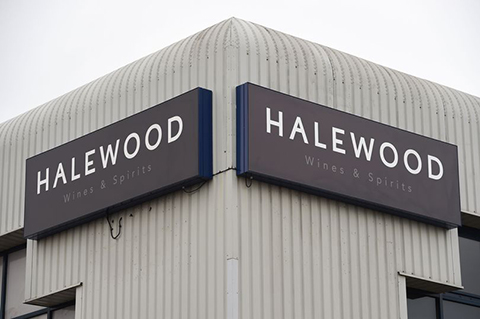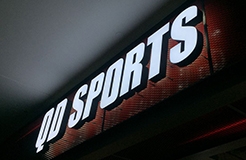Did not receive verification mail? Please confirm whether the mailbox is correct or not Re send mail

Vapor
- 2020-09-22 10:27:00
US luxury whiskey firm sues Halewood International over trademark infringement

Liverpool Gin is made at Halewood Wines and Spirits,Huyton.
Merseyside spirits firm Halewood International has been sued by an American luxury whiskey giant.
Sazerac Brands LLC says Knowsley-based Halewood infringed its trademark after selling a new high-end bourbon called 'American Eagle'.
Sazerac, based in New Orleans, Louisiana, said Halewood's product infringed on its well-established 'Eagle Rare' bourbon whiskey brand, which is sold in 10 and 17-year-old versions.
This case is not the first trademark row Halewood International, which produces the famous Lambrini wine and Whitley Neill gin brands, has been caught up in, as the Liverpool Echo reports.
In 2018 representatives of legendary We'll Meet Again singer, the late Dame Vera Lynn, took successful legal action after Halewood produced a range of novelty bottles of 'Vera Lynn' gin.
Eagle Rare, made by the Buffalo Trace Distillery in Frankfort, Kentucky, has won numerous industry awards and is not widely available, which a court heard adds to its "mystique" and desirability.
The Eagle Rare trademarks were registered in the UK in 1981 and in the European Union in 2002.
American Eagle, made in an unnamed family distillery in Tennessee, sells in four year, eight year and 12 year versions and was launched in February last year, with UK and EU trademarks registered in 2018.
But now a court has ruled that the trademarks for American Eagle are invalid.
Sazerac alleged that the "aura" associated with Eagle Rare would be transferred to or "rub off" on American Eagle, and that the association could damage its reputation or distinctive character.
Judge Mr Justice Timothy Fancourt, in a written High Court judgement handed down last week, said he did not find that the infringement had damaged the reputation of Eagle Rare, but he agreed that Halewood CEO Stewart Hainsworth had been "reckless" when registering American Eagle trademarks.
He said: "Mr Hainsworth is by nature innovative and an opportunist when it comes to branding of goods, and somewhat impulsive in his approach to 'banking' possible brand names.
"What he now characterises as poor misjudgement in the case of Vera Lynn is evidence of his rather bullish approach."
The court heard Mr Hainsworth came up with the whiskey idea when on business in Thailand in June 2018, noticing an "American Eagle" clothing store branch.
He was "immediately struck" by what a good name it would be for the bourbon he wanted to create, to add to Halewood International's range of spirits.
According to the judgement: "On impulse and without thinking, he did a search in the trade marks register for 'American Eagle' only; he found that the only prior registration in class 33 in that name had not been renewed in 2017 and he immediately instructed his trade mark attorney to register an application for that trade mark for the sale of spirits and whiskey."
The court heard Mr Hainsworth had been aware of a similar dispute between Sazerac and Irish firm West Cork Distillery, which had registered a trademark for 'Skibbereen Eagle' whiskey in 2018.
Mr Hainsworth had a "substantial" minority share in West Cork Distillery, and the firm used his companies to conduct its trademark affairs.
When the Skibbereen Eagle brand was registered, Sazerac disputed it and a settlement was reached whereby Skibbereen could use the Eagle sign but only for Irish whiskey, not bourbon.
The judgement says: "It was evident from Mr Hainsworth's manner that he rather resented the need for West Cork to submit to the will of the Claimants in the way that it chose to do.
"With the benefit of hindsight, Mr Hainsworth seemed able to persuade himself, but not the court, that the settlement agreement had nothing to do with [Halewood Int] or himself, save in so far as it was acting as agent for West Cork.
"It was not, he said, a matter with which he was at all concerned when seeking to establish the American Eagle brand."
Judge Fancourt ruled the average consumer of bourbon whiskey would be unlikely to think Eagle Rare and American Eagle were identical products.
However, he did rule that there was a risk UK and EU consumers could believe that American Eagle was a related brand to Eagle Rare.
He said: "I consider that there is such a risk because the product is identical, the names have marked similarity – indicative of a possible connection between them – and because the existence of connected brands using similar names is well-known to the public.
"In particular, once American Eagle four year old is established and becomes more widely known than Eagle Rare, having been positioned by the Defendants to compete with Jack Daniels and the like in the mass market, it will be natural for a consumer to assume that Eagle Rare is a special version of American Eagle."
A further date will be set to decide any damages.
Halewood International told the ECHO it did not wish to comment at this time, and did not answer questions about the future of the American Eagle brand or whether it plans to appeal.
Source:www.business-live.co.uk
Author:Jonathan HumphriesSenior ,Reporter Tom Houghton
Editor:Vapor
- I also said the two sentence
- Also you can enter 140words






